, the marathon was not invented in Greece

According to legend, the Greek messenger Phidippides arrived in Athens in 490 BC bringing news of an incredible victory over the Persians, thus inspiring the idea of the marathon we know today. This story is illustrated here. The problem with the latter is that it never happened.
Most of us believe that this race was inspired by an ancient Greek messenger who is said to have run 42 kilometers to announce the victory of his people against the Persians. Think again!
Ask most people about the origins of the marathon, a 42.195 kilometer race, and you'll probably hear about Phidippides. This ancient Greek messenger is said to have run this distance from the city of Marathon to Athens to announce the victory of the Greeks in a decisive battle against the Persians, before dying on the spot. Legend has it that the Greeks added a "marathon" to the ancient Olympic Games in honor of the herald.
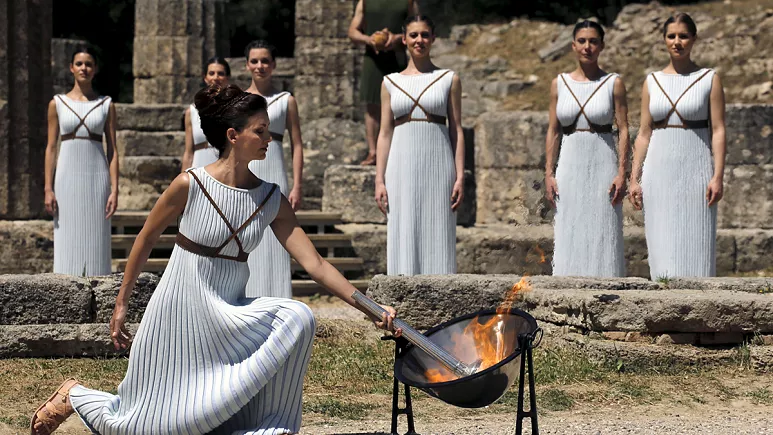
The real story, however, is much more complex. Where does the marathon get its name and why is everything you've heard about the race probably wrong?
ANCIENT ORIGINS?
First of all, let's present the facts: during antiquity there was indeed a Greek man named Phidippides who worked as a messenger during the war against the Persians in 490 BC. According to the ancient historian Herodotus , the race of the messenger was epic. Phidippides, however, did not come to announce the victory at the battle of Marathon but tried to gather troops in order to repel the Persians. Herodotus wrote that the messenger covered the incredible distance of 246 kilometers between Athens and Sparta in thirty-six hours.
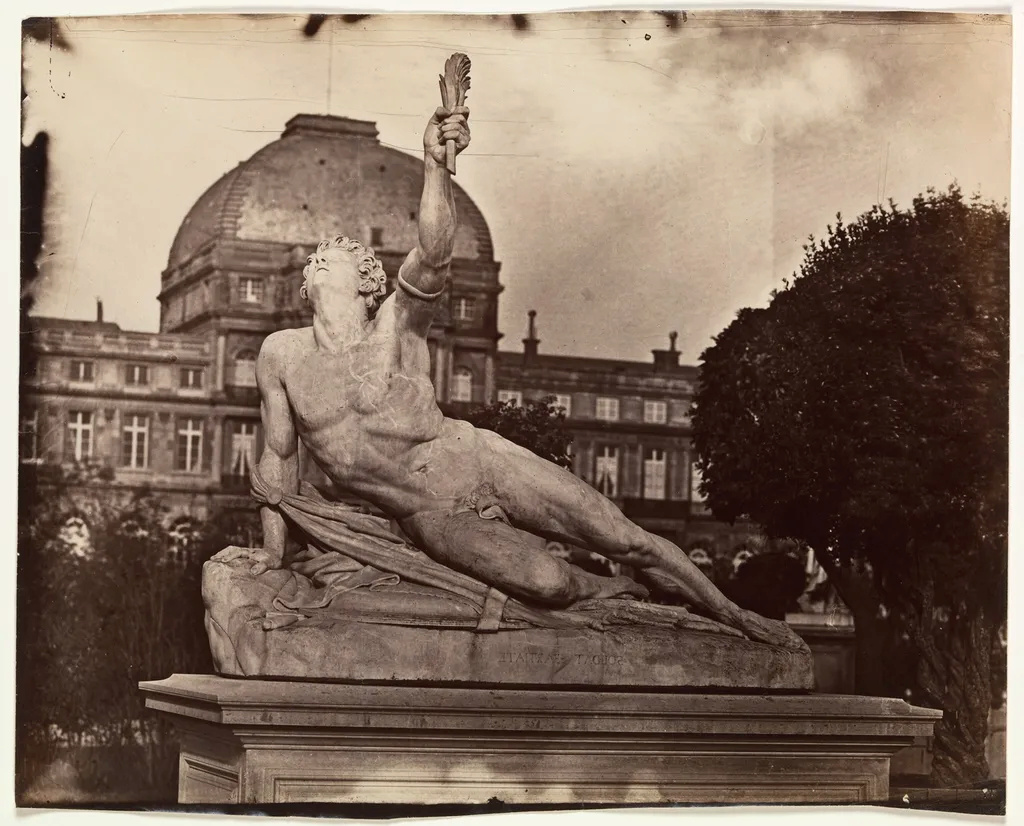
Is it true that a Greek messenger collapsed and died of exhaustion immediately after running to Athens to announce the rout of the Persian invaders at the Battle of Marathon? This is the scene represented by this statue. Historical accounts, on the other hand, are much less definitive.
This quest was successful: the Athenians won, repelling the Persians. Other than this incredible athletic feat, there is no mention that Phidippides broke the news of the victory or that he succumbed after it. The sources do not agree on the name of the messenger who transmitted it: it would be Thersippus or Eucles. In the year 347, Plutarch reported that "most say it was Eucles, who, running in his armor still warm from battle, could only say 'Rejoice! We are victorious!', then immediately expired . »
The legend of Phidippides announcing the victory of Marathon seems to have originated almost a thousand years later, in the 19th century , in a famous poem by Robert Browning. He wrote that the messenger ran to Athens, declaring, “Rejoice, we conquer! and died.
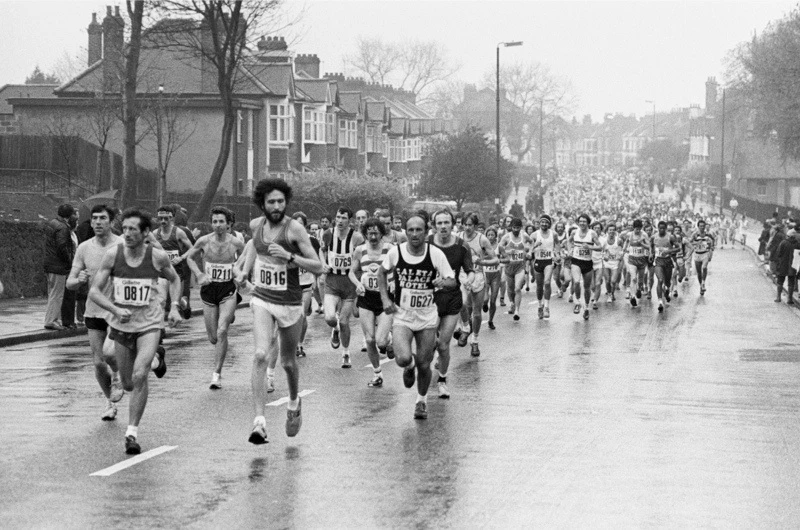
No race in the ancient Olympics, however, was inspired by any of these men. Although some events were foot races, they were shorter distances, whose unit of measurement was the stadium, determined by the length of the Athens stadium. The longest run was only 24 furlongs, or about 4.6 kilometers. That doesn't mean it was easy, though: historians say that in at least one competition, runners wore armor weighing just under 30 kilograms.
THE TRUE ORIGINS OF THE MARATHON
So where does the marathon get its name and what is the distance that characterizes it? The runners can thank the French linguist Michel Bréal and his knowledge of classical letters.
In the 1890s, the latter participated in the first Olympic Congress during which the International Olympic Committee (IOC) was created. This proposed a series of international competitions inspired by the ancient Games, taking place every four years and being hosted by the participating countries in turn. Greece had been hosting its own Olympics for years but the IOC wanted to formalize them as a competition between nations.
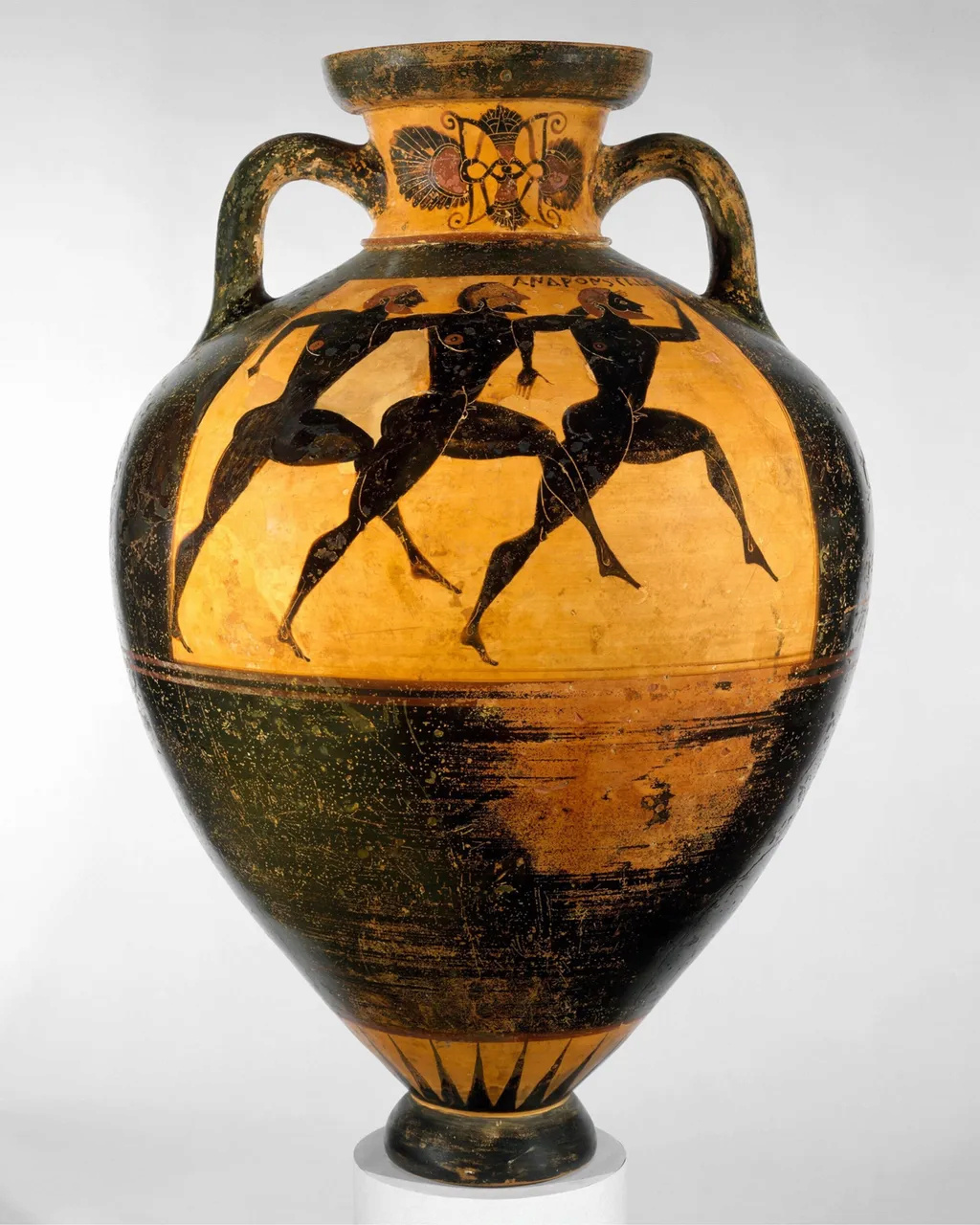
Foot races, illustrated on this vase by the painter of Euphiletos, are among the first known events of the Olympic Games of ancient Greece. However, these were probably not as long as the modern marathon.
Michel Bréal suggested that one of the events be a foot race between Marathon and Pnyx, where the ancient Athenians held their most famous assemblies, representing a distance of just under 40 kilometers. “See if we can organize a Marathon race at the Pnyx,” he wrote . “It will remind us of antiquity. »
This idea excited the organizers. At the 1896 Summer Games in Athens, Spyrídon Loúis won the race, giving victory to Greece. The Greek athlete drank alcohol to give himself the courage to overcome this grueling race during which he collapsed at least once.
It was not until 1908 that the race was lengthened to 42.195 kilometers in deference to the British Royal Family. The Olympics were held in London that year and the mileage was arbitrarily extended so that King Edward VII and Queen Alexandra could easily see the finish line from the royal box.
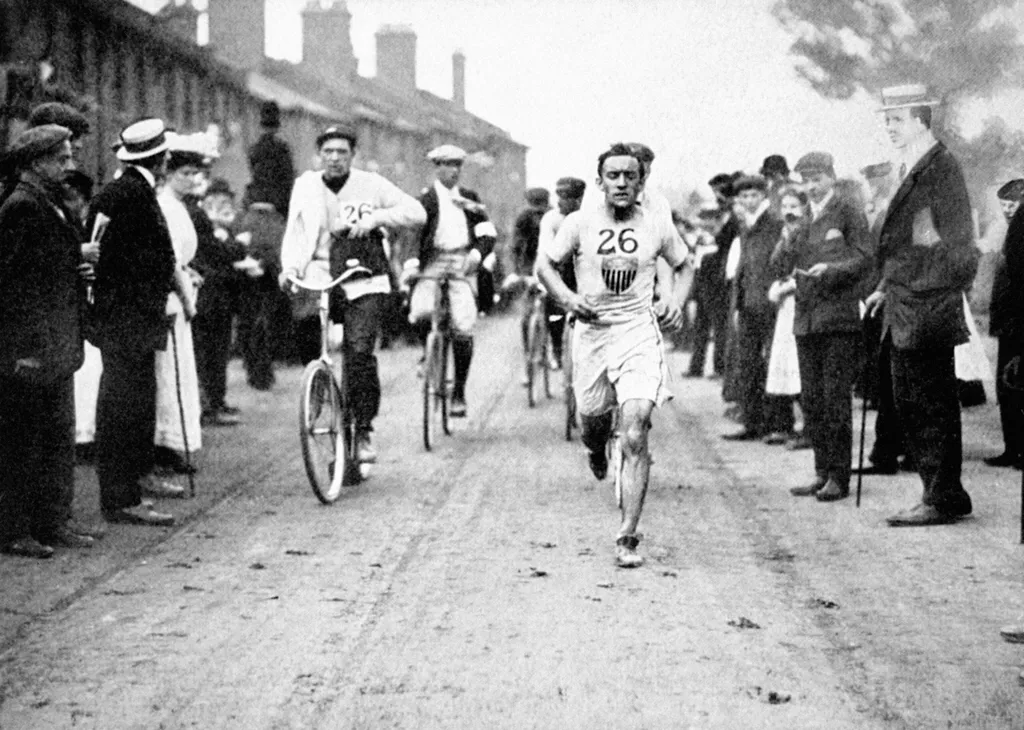
American runner John Hayes, future gold medalist, runs through London during the 1908 Olympics. It was the first year that the distance to be covered during marathons was extended to 42.195 kilometres.
The presumed winner of this longer marathon, the Italian pastry chef Dorando Pietri, is said to have fallen from exhaustion five times during the race. His victory was disputed due to the assistance he received from officials present at the scene, fearing that he might die in the presence of members of the royal family. It was therefore the American rider John Hayes, who came in second, who was declared the winner. The harshness of this arrival made the two men extremely famous. Since then, the race is still run over 42.195 kilometres.
THE MARATHON TODAY
Since then, marathons have steadily grown in popularity. The first American event of this type was held in Boston in 1897. The one in New York, although it did not take place until nearly a century later, in 1970, is today the largest in the country.
Women, excluded from most marathons until the 1970s, now excel in their own events, as do people with disabilities. Meanwhile, ultra-marathons and other races have become more and more popular, as running continues to develop. If the word "marathon" does not find its origin in the death of a messenger, the attraction for this discipline is not about to run out of steam.
Source : websites

